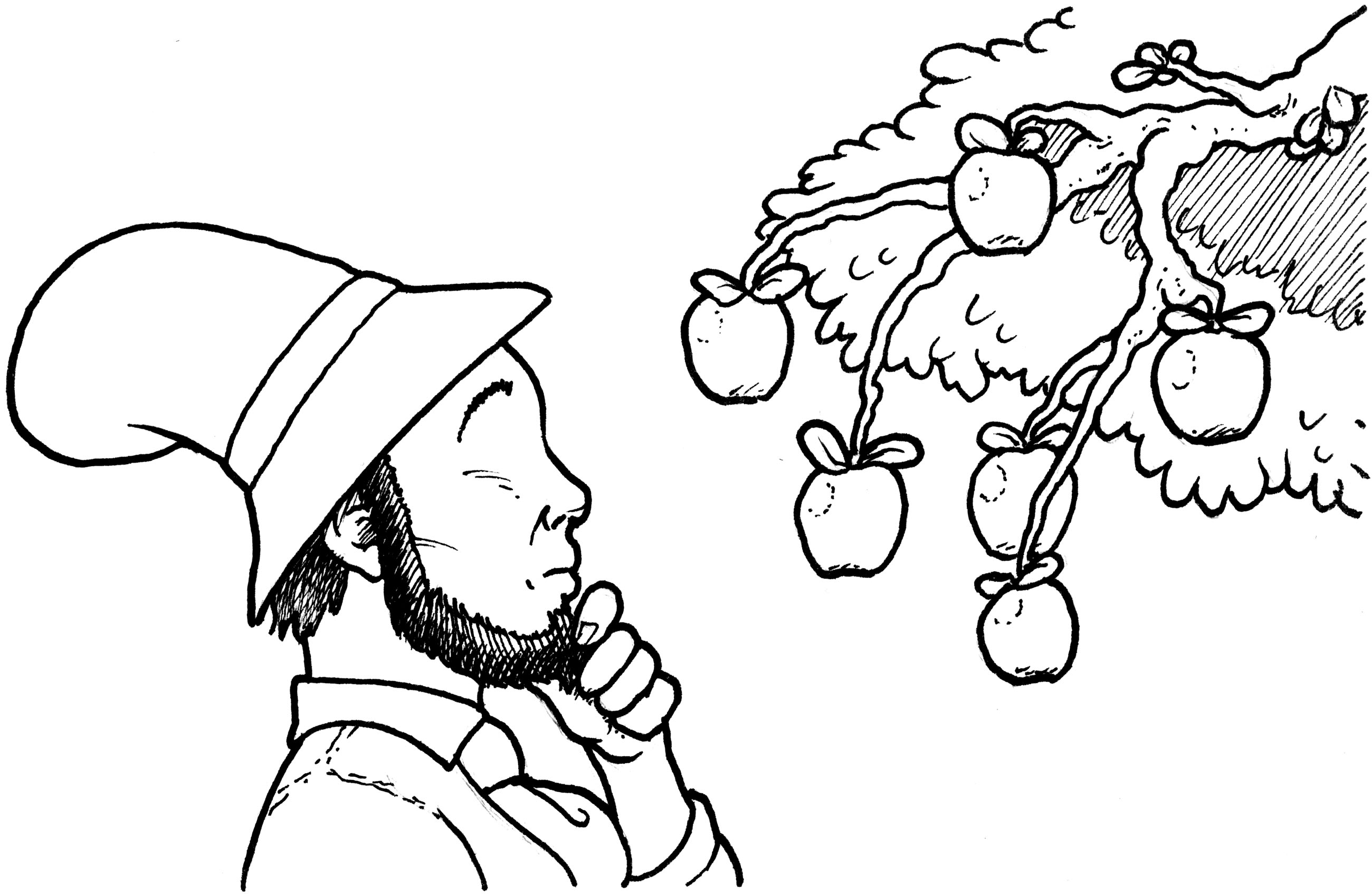|
There was a man who had no eyes,
He went abroad to view the skies:
He saw a tree with apples on it,
He took no apples off, yet left no apples on it.
|
This riddle rhyme -- and yes, it is a riddle -- was first published by John O. Halliwell in 1844 in one of his two famous collections of nursery rhymes... his books created the craze for Mother Goose books and rhymes that still exists today, and earned him the fond nickname of "Father Goose" from many later researchers.
Oh, and it's a plurals problem: the man had only one eye, and the tree had only two apples. Obviously, I totally ignored that to make the illustration!
This idea of changing apples plural to apple singular as a riddle existed in print as early as 1600 where it appeared in the Booke of meery Riddles, though it's not as intriguing as the rhyme above:
"I came to a tree where were Apples; I eat no apples, I gave away no apples, nor I left no apples behinde me. And yet I eat, gave away, and left behinde me."
|










